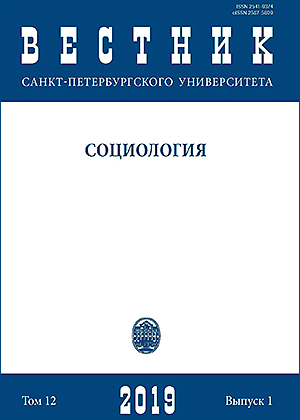Reconsider contemporary capitalism through reproductive tourism
DOI:
https://doi.org/10.21638/spbu12.2019.103Abstract
In facing the dilemmas brought by contemporary capitalism, it is necessary to rethink it in different social culture frameworks. The problematic consciousness of this research originated from my questioning of the universality and appropriateness of the discourses from some advanced European countries and the USA when I was conducting field research related to biotechnology issues, so this research attempts to use reproductive tourism as an example and to propose two main questions: (1) How the related discourses of reproductive tourism which oriented from European countries and USA are not enough to explain the current situations around the world? (2) How are the global link and the relations of domination of capitalism emerge from the current situations of reproductive tourism? For answering, this research depicts the global overview image of the capitalism logic and market-oriented economy concept by text analysis, and reset the status quo of reproductive tourism in different cultures by reflecting on the use of terms. And then, comb possible diversity beyond the capitalized discourses and conduct the critique. In addition, the case of Taiwan is also discussed as a reference to the theorization of capitalism by relevant practitioners and researchers in the future. This research believes that, based on the multiple differences of the background in different places, more empirical researches are still needed to supply the discussion of the internal contradiction of existing discourse. As an analytical framework, reproductive tourism can promote the reflection on the influence and mutual shaping of different economic models and capitalist logic.
Keywords:
capitalism, commercialization, diversity, reproductive tourism, strong discourse
Downloads
References
References
Downloads
Published
How to Cite
Issue
Section
License
Articles of "Vestnik of Saint Petersburg University. Sociology" are open access distributed under the terms of the License Agreement with Saint Petersburg State University, which permits to the authors unrestricted distribution and self-archiving free of charge.




